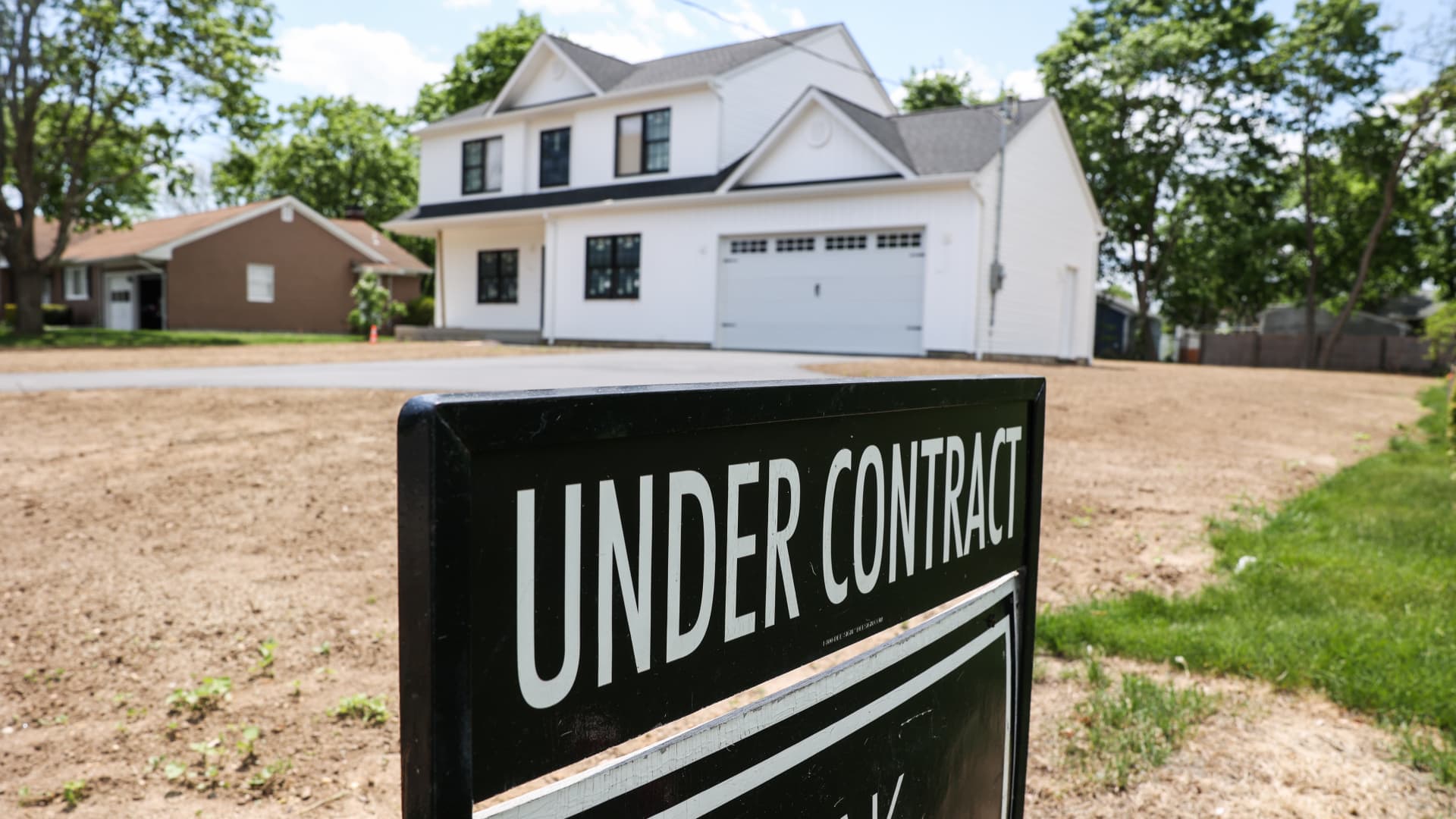Patchogue, N.Y.: A home for sale, under contract, on Center Street in Patchogue, New York on May 17, 2022.
Steve Pfost | Newsday | Getty Images
In many areas of the country, homes continue to sell even as rising mortgage rates, high prices and recessionary concerns filter through economy. During the recent real estate boom, the urgency many would-be buyers have felt to act means making an offer sight unseen.
Nearly half of homebuyers — 47% — made an offer in the past two years without physically touring the property, according to LendingTree.
“I see a big sense of urgency with folks,” especially those who have lost out on multiple offers, said Adam Lampe, co-founder and chief executive of Mint Wealth Management in Houston, Texas.
While the housing market is cooling, to date it’s still a seller’s market, and buying sight unseen can be a viable strategy. Here are four caveats.
1. Don’t make snap decisions
It’s a challenge when you’ve lost out on several homes and are starting to feel desperate. And it can be even more frustrating when others are willing to plunk down cash with few or no conditions.
Notably, all-cash sales accounted for 25% of transactions in May, according to the National Association of Realtors. That’s down from 26% in April, but up from 23% in May 2021.
More from Invest in You:
Summer temps — and inflation — are running hot. Here’s how to save money on cooling bills
The ultimate retirement planning guide for 2022
Here’s how to save $1 million for retirement on a $60,000 salary
However, just because others are “throwing caution to the wind” doesn’t make it a good idea, said Connor Daniels, a realtor in Olathe, Kansas. He tells clients to plan to miss out on at least five to 10 houses and strongly advises them not to buy a property sight unseen, even to clinch a deal. “To say it nicely, pictures can make a rough home look really nice,” he said.
If you do plan to buy sight unseen, you should at least mitigate the risk by having someone else do a walk-through on your behalf, said Andy Hart, chief executive of financial planning firm Delegate Advisors. Insisting on an inspection and making sure adequate contingencies are in place in case you need, or want, to back out are also advisable.
2. Know what you are getting into
The calculations may be different depending on the property you’re considering.
“It would be one thing if you were buying a rental or flip for $50,000 and you had that money,” said Daniels. But it would be “crazy” to spend several hundred thousand on a home that you are planning to live in without doing your homework, he said.
Another exception could be if you’re in the market for new construction. “The cities are really strict with permits on new construction. They go in and inspect absolutely everything,” said Cameron Burskey, managing director of retirement security at Cornerstone Financial Services in Southfield, Mich.
“That should make you feel more comfortable if you are buying sight unseen,” he said.
3. Send a trusted professional, family member or friend as your proxy
“Someone you trust should see the house before you buy it,” Burskey said. This could be a friend, family member, contractor, inspector, or even a real estate agent.
Daniels has done this several times for clients. One couple he worked with recently didn’t see their new home in person until several weeks after the closing. But to give the couple a real-life sense of what the home looked like before they made an offer, he FaceTimed with them while doing a thorough walk-through. In this way, they felt comfortable about not being there in person and were able to act quickly, he said.
4. Don’t pass up the inspection
Many would-be buyers are opting to forgo the inspection to move deals along. As tempting as that may sound, don’t do it.
Inspections can identify issues that can prove costly later on, such as the need for a new roof, leaks or mold. Buyers should at least know these things before they plunk down hard-earned cash on what could be the largest purchase they’ll make in their lives.
“A good inspector is worth a lot,” said Lampe of Mint Wealth.
An inspection gave Hart the confidence he needed to purchase a 1920s bungalow sight unseen. He made the sale contingent on inspection. Good thing, too, because the house’s foundation was in complete disarray, necessitating a fix by the seller before the deal closed.
Hart also made an offer on a four-year-old townhouse based only on internet pictures. That purchase was also subject to inspection and included a 10-day back-out window. He didn’t expect problems, but the added protection was his “get of jail free card,” something everyone should have, especially in a sight-unseen deal, he said.
“You should absolutely have protections in the contract always,” Hart said. “It’s better to walk away from a potentially bad situation than to put yourself in one.”
SIGN UP: Money 101 is an 8-week learning course to financial freedom, delivered weekly to your inbox. For the Spanish version Dinero 101, click here.
Disclosure: NBCUniversal and Comcast Ventures are investors in Acorns.

